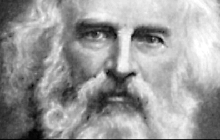If we are going to seriously consider this question (Why Do We Desire Beauty?) then we have to have real motive. While it is possible to examine a question like this out of pure intellectual curiosity, nevertheless real truth should make real changes in how we live. And that is at the heart of why studying something like beauty matters. We have been told too often in our culture that beauty is superfluous. We have been taught to see it as something “extra.” We perhaps even view it as something that is not fundamental to life. But that is not true.
Since the very foundations of our culture were laid thousands of years ago in Ancient Greece, we have been discussing how beauty is linked with its siblings: truth and goodness. Over and over, whether in the Humanities or Natural Sciences or mathematics, man has found truth to be beautiful. Finding truth has, in part, been a pursuit of beauty. And the same is found in regard to ethics. The greatest good, the best of man’s virtue, has a beauty to it. The way of a mother with her child, or a fireman bringing out a victim from the burning house, or a farmer with a nursing lamb, contain elements of attractive beauty to us.
So there is a connection between our grasp of truth and goodness and our apprehension of beauty. But our question probes past this to the “why” of the thing. What is it about Beauty that makes us desire it?
Imagine for a moment being awakened while it is still dark and heading up a steep and difficult mountain trail, grasping and gasping to reach the top. You become tired, hungry, above all thirsty, but you are working against time. Why all the pain and struggle? So that an hour or two later you sit down, with cool water in your jug, and watch as the sun rises over the horizon. The reds and oranges and yellows explode out before your watching eyes, quickly mixing with rich blue. Something is moved within you. You are in a heightened state of awareness. You may remember that moment the rest of your life. Why?
It was Pope John Paul II who wrote that Art is “the primitive word…beyond the limits which concepts cannot pass…”
It is not beyond most of us to quickly grasp that beauty is in fact connected to joy, to happiness, to satisfaction in life. There is a pleasure that comes when we are brought into what we call “the sublime,” that state of rapture or pleasure that beauty brings, at least briefly, into every life. One poet put it this way:
What is this life if, full of care,
We have no time to stand and stare.
No time to stand beneath the boughs
And stare as long as sheep or cows.
No time to see, when woods we pass,
Where squirrels hide their nuts in grass.
No time to see, in broad daylight,
Streams full of stars, like skies at night.
No time to turn at Beauty’s glance,
And watch her feet, how they can dance.
No time to wait till her mouth can
Enrich that smile her eyes began.
A poor life this is if, full of care,
We have no time to stand and stare.
William Henry Davies, Leisure
So what is it about beauty that so attracts and pleasures us? If it is connected to what we believe and how we live, then it is important. How is the sublime so powerful in us? Why do we need “time to stand and stare”?
Version 1.1








